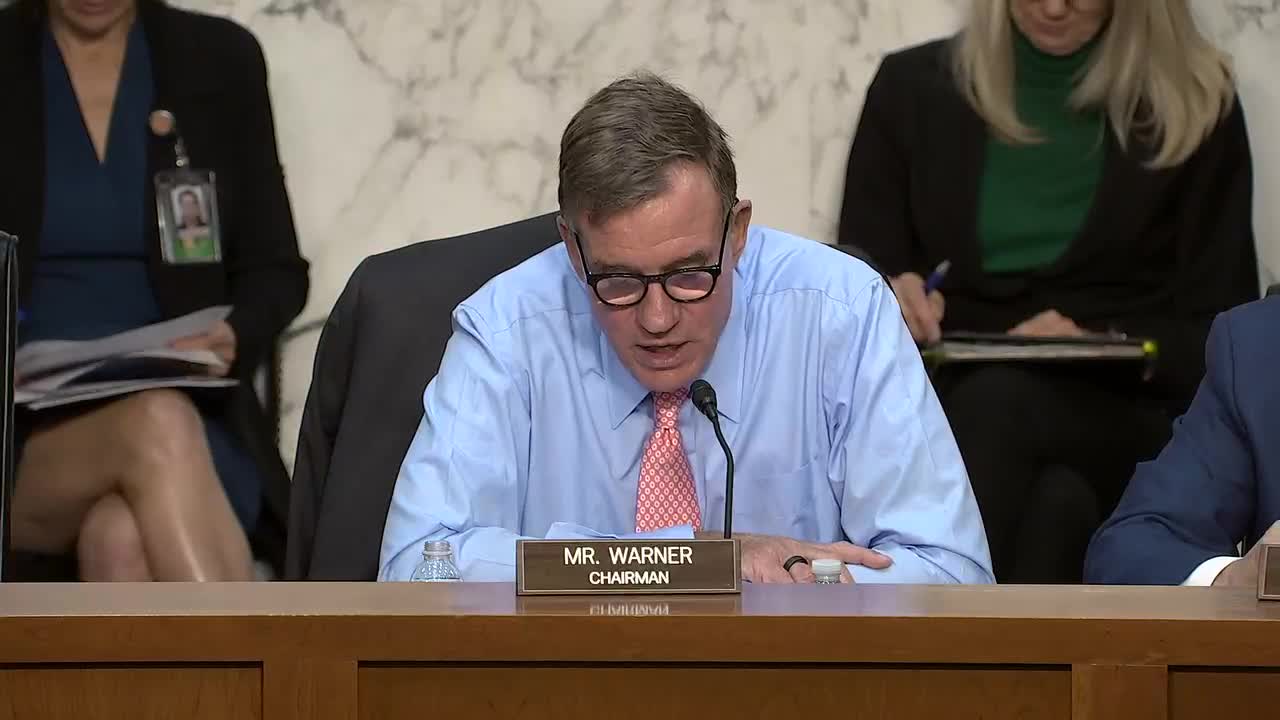Senate panel: China targets U.S. state and local governments through investments, partnerships and delegations
Get AI-powered insights, summaries, and transcripts
Subscribe
Summary
Witnesses told the Senate Select Committee on Intelligence that the Chinese Communist Party has shifted emphasis to influence U.S. state and local officials through investment, sister‑city ties, sponsored trips and covert data collection, and urged better federal support and transparency for subnational decision‑makers.
Sen. Mark Warner, chairman of the Senate Select Committee on Intelligence, opened an open hearing saying the purpose was “to better understand the PRC's malign influence strategy targeting the United States,” highlighting a focus on efforts that target state and local governments.
Dr. Glenn Tiffert, research fellow at the Hoover Institution, told the committee that “in the United States, when it comes to malign foreign influence, U.S. states and localities are America's soft underbelly,” and described a broad Chinese strategy—often routed through the party’s United Front apparatus—that seeks to shape incentives and public opinion at the subnational level.
The witnesses described specific vectors used to influence local decision‑makers: business investment and access to capital, people‑to‑people exchanges and paid trips for “key opinion leaders,” drafting or inserting language into municipal documents, and leveraging economic ties to press local officials. Tiffert cited a 2019 example in which diplomats reportedly sought to block a Maryland city from signing a sister‑city agreement with Taiwan by warning that the city had earlier agreed to certain principles with a Chinese sister city and “dangling investment opportunities.” He said the city ultimately proceeded with the Taiwan agreement despite pressure.
Sarah Cook, senior advisor for China, Hong Kong and Taiwan at Freedom House, described how China‑linked foundations and local public relations firms recruit leaders, journalists and community influencers, sometimes framing visits as cultural or educational exchanges while seeking “personalized perspectives that can be articulated as…balanced opinions” on U.S.–China issues after return to the United States.
Witnesses also warned that Chinese actors routinely collect personal information on subnational officials and business leaders—through open‑source means and commercial data providers—and may use that intelligence to craft exploitation strategies. Adam Koehler, a former assistant director in the FBI’s counterintelligence division now working in the private sector, described how technological collection and extensive data sets allow PRC actors to map influence networks and identify leverage points around state and local decision makers.
Committee members asked how localities can resist these pressures. Witnesses recommended: increased federal support and integrated “touch points” for subnational governments; funding for open‑source research into foreign influence; improved transparency in sponsored trips and agreements; and updating enforcement and disclosure regimes to make covert influence easier to detect. Tiffert emphasized capacity building rather than reflexive decoupling, saying subnational governments need “infrastructure and capacity to make better, more informed decisions about risk.”
The witnesses and senators raised examples that span a range of geographies and sectors—universities, chambers of commerce, sister‑city programs and local economic development offices—while stressing that federal policy tools and research resources are underused at the state and local level.
Looking ahead, witnesses urged steps such as clearer reporting on foreign funding and sponsored travel, stronger enforcement of registration statutes, and federal assistance to help local governments evaluate investment offers and partnership contracts. They said the goal is to give subnational leaders the ability to weigh economic benefits against geopolitical risk without being blind‑sided by opaque outside influence.
